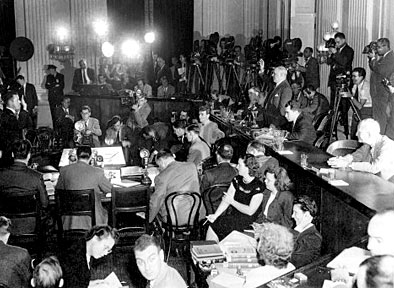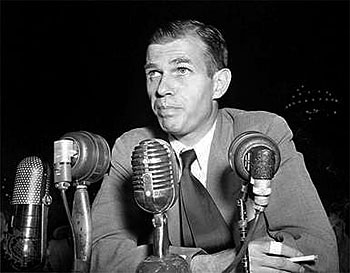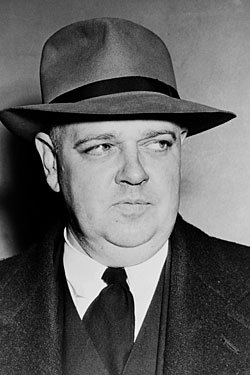Communism and the American Home Front
While the American government tried to stop the spread of communism in Europe, there was another movement within the United States to weed out any traces in the nation. The United States government introduced the House of Un-American Activities Committee (HUAC). Initially HUAC served to investigate individuals exhibiting disloyalty towards the nation prior to World War II. Now they served to identify Communist uprisings within the United States.

The movie industry was one group in particular that was sought out. Many in Hollywood at this time were known for having radical views and beliefs, so they were seen as possible threats. In 1947 HUAC called upon a number of writers, actors, and producers to testify in a court of law, validating their political ideology and allegiance to the United States. The ensuing hearings became known as the Hollywood Ten Trials.
In 1952, the United States passed the McCarran-Walter Act. This law, which established a quota system, allowed only a certain number of immigrants from Communist-based nations to enter the United States each year.
The bill enraged President Truman but Congress approved it. Adding to the growing fear of communism in the nation was the Alger Hiss case in 1948. HUAC investigated Alger Hiss, a former high-ranking State Department official who had decided to leave his government position.
 Alger Hiss |  Whittaker Chambers |
Whittaker Chambers, a Time magazine editor and former Communist, had accused Hiss of being a Communist and Soviet spy. Hiss was eventually convicted for perjury and sentenced to jail.